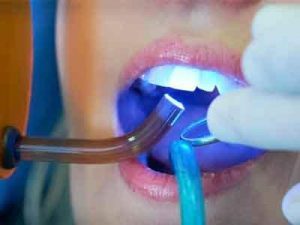- Home
- Editorial
- News
- Practice Guidelines
- Anesthesiology Guidelines
- Cancer Guidelines
- Cardiac Sciences Guidelines
- Critical Care Guidelines
- Dentistry Guidelines
- Dermatology Guidelines
- Diabetes and Endo Guidelines
- Diagnostics Guidelines
- ENT Guidelines
- Featured Practice Guidelines
- Gastroenterology Guidelines
- Geriatrics Guidelines
- Medicine Guidelines
- Nephrology Guidelines
- Neurosciences Guidelines
- Obs and Gynae Guidelines
- Ophthalmology Guidelines
- Orthopaedics Guidelines
- Paediatrics Guidelines
- Psychiatry Guidelines
- Pulmonology Guidelines
- Radiology Guidelines
- Surgery Guidelines
- Urology Guidelines
Eight dental fillings can up mercury levels in blood: Study

Tooth decay is one of the most prevalent chronic diseases worldwide. Dental amalgam the fillings used for surface restorations consisting of a mixture of mercury, silver, tin and other metals may significantly increase mercury levels in the body, a study has found.
Dental amalgam has been the go-to dental filling material for more than 150 years, because it is affordable and durable.
However, about half of the compound contains mercury, a heavy metal known to be toxic at high levels, causing brain, heart, kidney, lung and immune system damage, the researchers said.
“If you have one dental filling, maybe it’s OK. But if you have more than eight dental fillings, the potential risk for adverse effect is higher,” said Xiaozhong “John” Yu, Assistant Professor at the University of Georgia.
Individuals with more than eight fillings had about 150 per cent more mercury in their blood than those with none.
Yu said this result suggests the human gut microbiota a collection of micro-organisms living in the intestines may transform different forms of mercury.
Further, the study found that a significant increase in methyl mercury, the most toxic form of mercury, is also related to dental fillings.
This methyl mercury may cause damage even at low levels, the researchers warned.
In addition, the researchers also looked at dental composite resins, a mercury-free alternative for dental fillings that can release small amounts of bisphenol A, or BPA, which may cause developmental or reproductive damage.
The research, which analysed data from nearly 15,000 individuals, was the first to control for age, education, ethnicity, race, gender, smoking and seafood consumption a known contributor to mercury levels in the body.
The results were published online in the journal Ecotoxicology and Environmental Safety.

Disclaimer: This site is primarily intended for healthcare professionals. Any content/information on this website does not replace the advice of medical and/or health professionals and should not be construed as medical/diagnostic advice/endorsement or prescription. Use of this site is subject to our terms of use, privacy policy, advertisement policy. © 2020 Minerva Medical Treatment Pvt Ltd